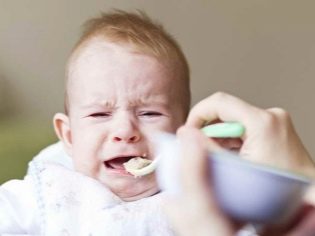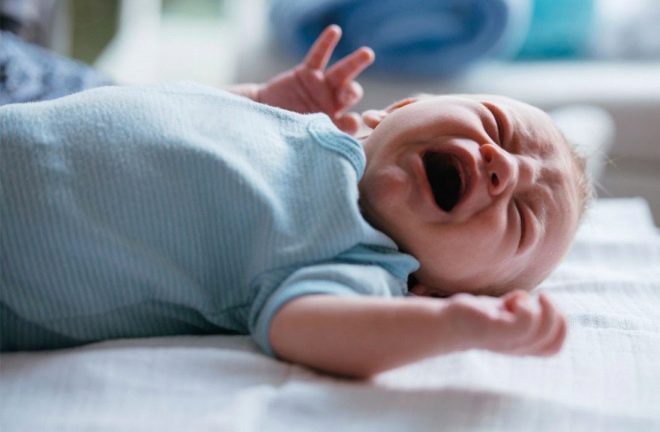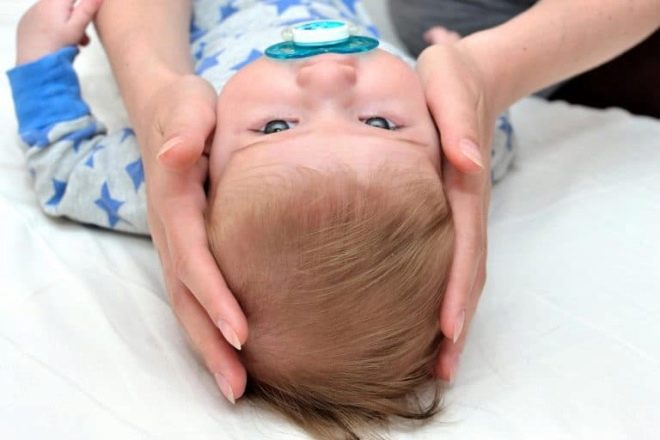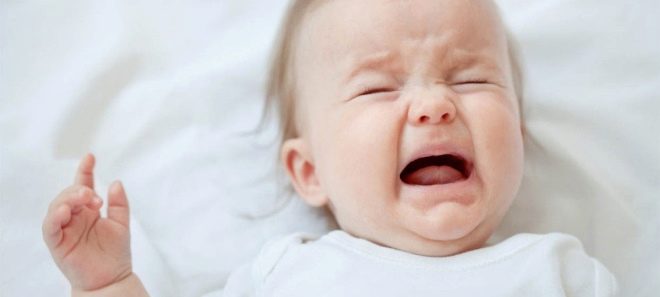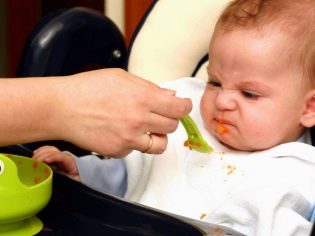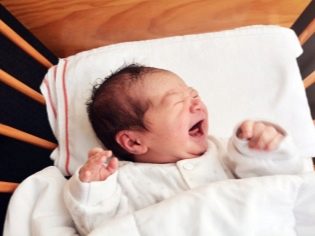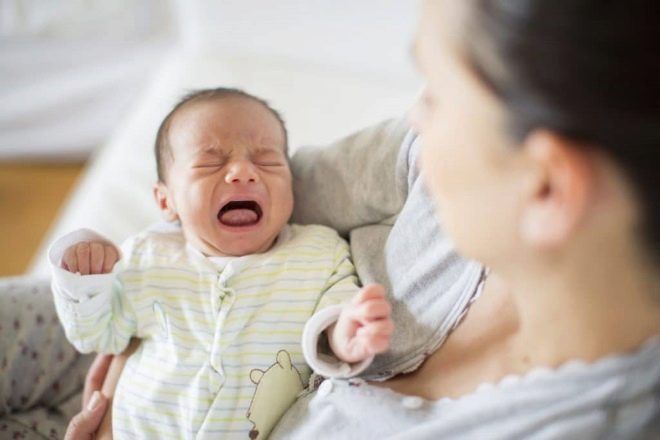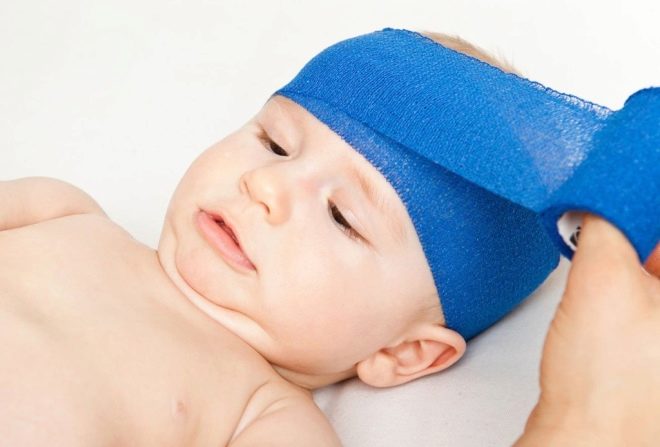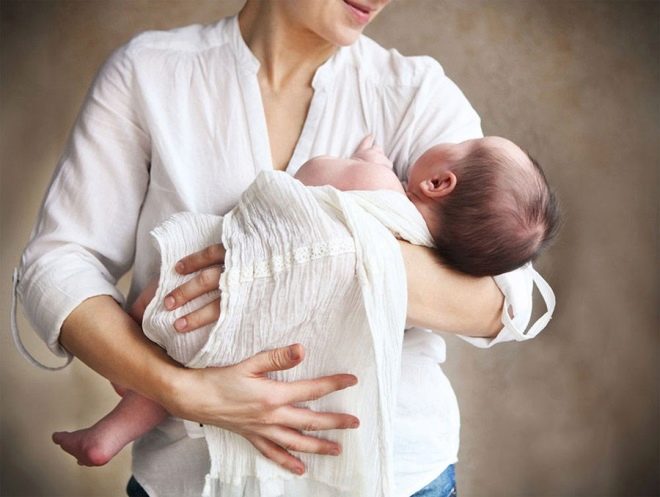Symptoms and signs of concussion in the infant, possible consequences
Falls for young children, alas, are not uncommon. Babies fall from the changing tables, drop out of the highchair, strollers, cots. When the time comes for the first steps, the falls generally become regular. In this regard, parents should know what signs may indicate a concussion in the infant. In this material we will talk about this.
Features of injury in infants
It should be noted that infants often fall, but the occurrence of concussion after a fall occurs infrequently in them. Nature itself has created the most secure conditions for the growth and development of babies. In a newborn baby, the bones of the skull are soft and supple, four fontanelle provide their mobility. This is necessary for the head to pass through the birth canal at the time of birth.
Throughout the first year of life the fontanelles remain unclosed. The amount of cerebral fluid in which the brain is located inside the skull is increased compared with the amount of cerebrospinal fluid in older children and adults. All this creates favorable conditions for possible depreciation in case of impact both for a newborn and for a child of 6 months, and for the crumbs a little older.
Therefore, even after falling headfirst down, an infant does not always get head injuries, getting off with a big scare and cry, caused directly by fear, and not by pain and injury, as most parents think.
Much depends on the height from which the fall occurred. From the couch or from the height of their own growth, even falling with hitting the head very rarely entail a concussion. From the changing table or from the highchair, the falls can be more traumatic and the consequences more serious. Therefore, the parents' task is to secure the baby as much as possible, but if it was not possible to prevent the fall, you need to know for sure what signs of concussion are accompanied by.
Concussion itself is classified as a head injury, but it is the easiest of them. When a concussion occurs, the brain is struck against the cranial bones. At the same time, the brain itself does not suffer, is not damaged, but a short-term violation of its functions is possible, because at the moment of impact a violation of the message and coordination of some of its departments occur among themselves.
Symptoms
A bright clinical picture, according to which parents can guess a possible concussion, should not be expected in the case of infants. Often, toddler under the age of 1 year, the symptoms of injury, even if it is received, flow smoothly and implicitly. Adults will need close observation of the baby during the first days after the fall - usually this time is quite enough for the concussion to manifest itself. If after a day or two there are no symptoms, you can not worry, tremors, most likely, did not happen.
After a strike, the child usually cries a lot and screams. After he calms down, in the overwhelming majority of cases the crumbs tend to sleep. In babies of infancy, shaking is very rarely manifested by loss of consciousness, and therefore it is not worthwhile to focus on this bright sign, which is important for diagnosis in adults and children of older age.
The first signs of a brain injury after waking up can be:
- lethargy, apathy, lack of emotional reactions to a favorite toy, mother;
- lack of appetite;
- nausea and vomiting, profuse regurgitation;
- small nystagmus of pupils and difference in their size (pupils easily shake from side to side);
- the skin may become paler;
- capriciousness, irritability, monotonous causeless crying;
- difficulty falling asleep;
- swelling and pulsation in the fontanel area;
- kicking the back and dropping the head for no apparent reason;
- convulsions.
It is not necessary to seek out all the listed symptoms from a baby in order to recognize a concussion. The appearance of any of them or a combination of several symptoms from the list upon waking up is a good reason for going to a doctor.
If the child fell, cried, fell asleep, and therefore woke up and feels good, eats, plays, behaves normally, there is no need to go to the doctor. Remember that you can only determine the concussion during the first day, then the symptoms begin to decrease and disappear. Short-term disruption of the central nervous system is characteristic of concussion.
If there are swelling, bruising, lumps, abrasions on the head after the fall, this is not a reason to suspect a concussion.
Often, a true concussion does not manifest itself by external signs, it can only be indicated by a gradually developing disruption of the nervous system.
Possible consequences
If a baby has had a concussion, then there should be no greater danger. With it, the bones of the skull are not injured, the brain does not suffer, and therefore all its functions will be restored by themselves within 3-7 weeks after injury. Much more dangerous is other TBI, which at the initial stage can take the form of concussion according to the clinical picture (brain contusion, hematoma). That is why it is important to show the child to a neurologist and a traumatologist if he has signs of a concussion.
If the recommendations of the doctor are followed, the forecasts will be very favorable. Repeated head injuries are much more dangerous. Thus, with the second or third concussion, the risk of post-traumatic encephalopathy, which for many years will remind of itself with systematic headaches, increased intracranial pressure, impaired motility of the legs and hands, bouts of dizziness, sweating and episodic fainting, increases significantly.
What should parents do?
At the first stage, parents should carefully observe the child. Any change in his behavior must be interpreted in favor of injury. In this matter, it is better to be safe than to lose time. If symptoms appear, you should immediately call an ambulance. You should not take a child to a trauma center on your own, because at home without adequate medical education and equipment there is absolutely no way for you to diagnose the exact type of injury.
The baby should be picked up, turned to face on the right flank, and so carried until the doctor arrives. It is desirable that the legs and handles of the crumbs be bent at the joints, this can alleviate his condition if spasms suddenly begin. The side position on my mother's hands will not allow the baby to choke on vomit if it starts to feel sick. Before the arrival of the doctor, it is better not to give the child food and drink, also do not give any medication.
If a child wants to sleep, let him sleep, to wake him up, as is done with older children, there is no need. Describe the symptoms detected to the doctor, show the place of the impact, the height from which the child fell, indicate at what time it happened and how much time has passed since the fall.
The child will be taken to the hospital, where he will undergo an ultrasound of the brain, if necessary - EEG, radiography and MRI. An examination by a neurologist will be conducted, and an ophthalmologist will conduct an ophthalmoscopy to examine the state of the fundus.
It is recommended to stay in the hospital for several days.Doctors need this to make sure that there are no other injuries besides concussion. Then you can continue the recovery at home - the child is shown rest, bed rest, the absence of sharp light and sound stimuli. Games should be calm, daily massage should be temporarily canceled.
Mom should ensure that the recommendations of the doctor regarding the administration of prescribed medications are followed. Typically, babies are recommended sedatives to facilitate falling asleep, vitamins and nootropic drugs that improve cerebral circulation.
You will learn more about brain concussion in the following video.


